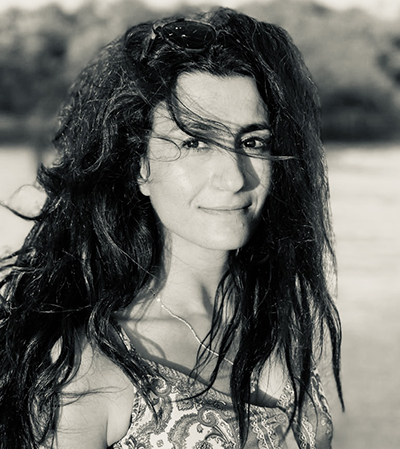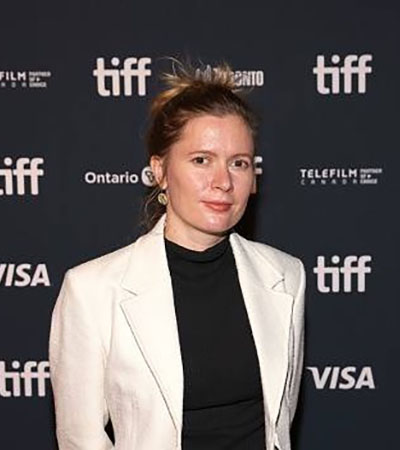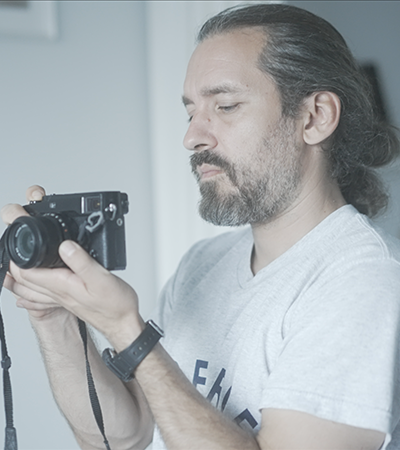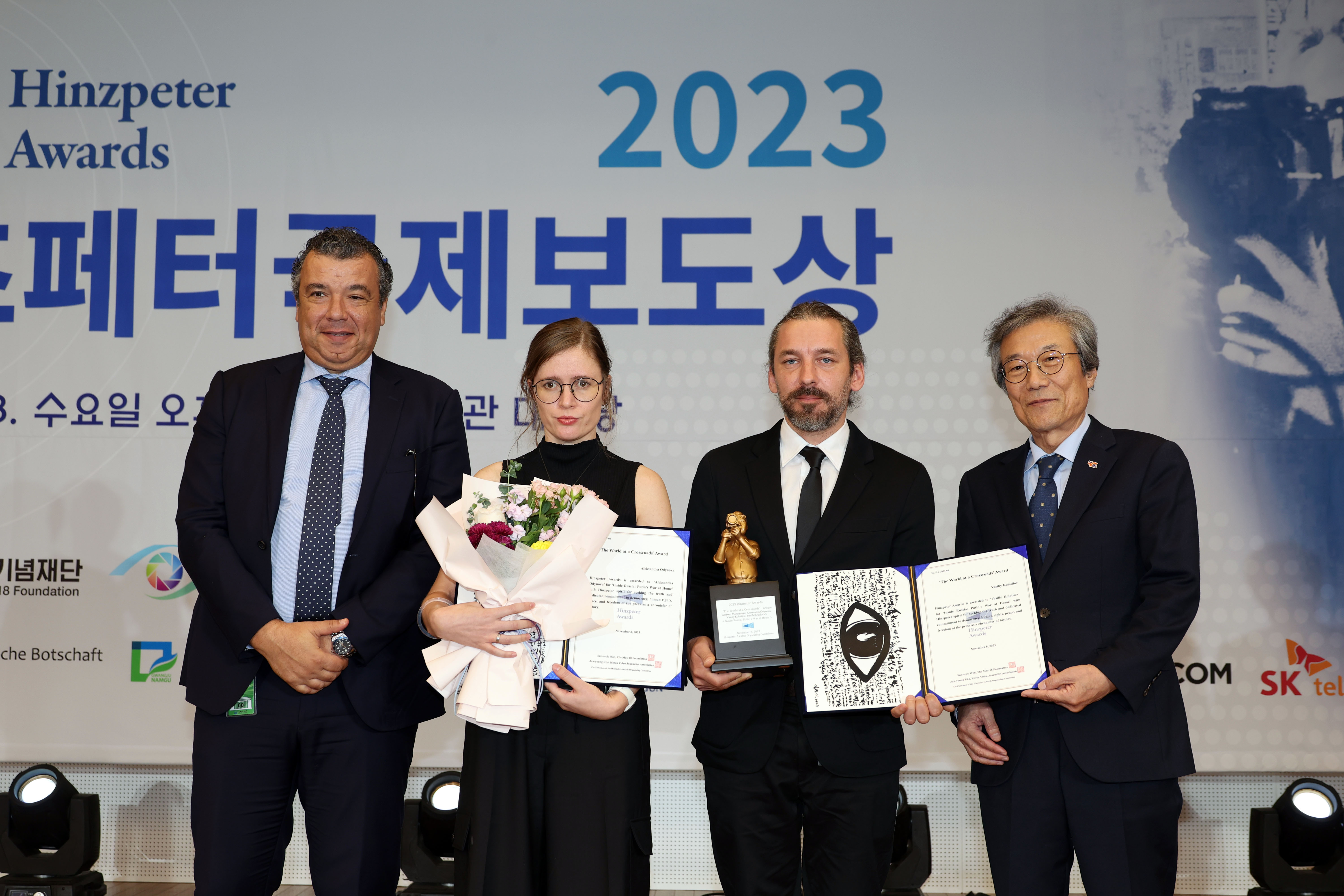‘The World at a Crossroads’ Award







2023 Hinzpeter Awards Winners






After Russia invaded Ukraine in 2022, the documentary Inside Russia: Putin’s War at Home was selected as the winner of The World at a Crossroads Award. This work contains stories that include criticism of the Vladimir Putin regime, opposition movements to the war on Ukraine, calls for the transparent disclosure of information related to the conflict, and demand for freedom of the press and expression. The reporting team documented conversations with people in Russia before the war until its outbreak and up until Putin gave his mobilization order.
Amid the war, people in Russia face prison sentences for making contact with foreign media. As of March 4, 2022, a law signed by Putin known as the "fake news" law criminalized dissemination of "blatantly false" information about Russian military operations, with the penalty a maximum of three years in prison. If the spread of false information is judged to have serious consequences for the country, the sentence could be up to 15 years. Russian authorities have weaponized this law to violently suppress, arrest, detain, and torture those who oppose the war, criticize Putin's mobilization of the populace, or demand information on wartime casualties, branding them as "extremists against patriotism."
Considering these circumstances, the investigative team assumed the risks and sought individuals in Russia resisting threats to democracy, human rights, and peace, capturing their voices on video to share with the world. The judging panel praised this report for vividly documenting and exposing the untold stories within Russia that were hidden due to the ban on foreign correspondents from reporting or withdrawing from the area. The jury also recognized that the dedication and journalistic spirit of the four video journalists, who like their sources took on the risk of arrest and punishment for their reporting, resonated with the spirit of journalism exhibited by Hinzpeter in Gwangju in May 1980. As a result, they were named this year's winner of The World at a Crossroads Award.
Situated in southeastern Ukraine, Bakhmut in August 2022 was the most dangerous battleground of the war in Ukraine. The reporters including Ben C. Solomon stayed in the city for two weeks amid continuous Russian artillery and air strikes, documenting the harrowing realities of war through the experiences of Ukrainian soldiers and remaining civilians.
The report shows the activities of Ukraine's International Legion, people seeking refuge in underground bunkers, firefighters defending the city with scarce resources, a 8-year-old girl left in the city, and Russia's merciless assaults on educational institutions and medical facilities. This pivotal documentation exposed the falsehoods of a war that professes to champion peace and humanitarian values while perpetrating atrocities.
The judging panel lauded the report for its comprehensive portrayal of the war's impact on civilian life, highlighting the resilience and hope of the Ukrainian people. They gave it high marks for its empathetic storytelling that upholds a viewer's right to be informed, filming techniques that vividly depict war's grim realities, objective reporting underscored by sharp questions and analysis, and challenges faced by the reporters who navigated artillery and air strikes while interviewing Bakhmut residents. The jury said such fearless coverage is reminiscent of the ethos of Hinzpeter, who covered Gwangju in May 1980 despite the perils of martial law and suppression.
In 2018, several reporters were tragically killed while investigating the Russian private military company Wagner Group in the Central African Republic (CAR). Picking up where their colleagues left off, French freelance video journalists Carol Valade and Clément Di Roma took on this daunting challenge and released Russian Soft Power in The CAR. Their August 2022 report scrutinized the violence and abuse perpetrated by Wagner within the country.
Despite gaining independence from France in 1960, the CAR has suffered from civil unrest since 2012. With the second-lowest score in the United Nations Development Index, this country is where Wagner's actions are conspicuous. Braving significant risks, the two journalists delivered in-depth, on-the-ground coverage to spotlight Russia and its proxy Wagner, whose escalating influence both politically and socially within the CAR stood out. The report incisively captures the group's strategy of using cultural and psychological tactics to hasten the Russification of CAR society.
In 2021, the UN Security Council received disturbing field reports indicating that Wagner led battles against rebels and committed heinous acts such as civilian killings, rape, instant executions, and torture. Valade and Di Roma adeptly conveyed the complex emotions of CAR citizens facing these harsh realities.
Their coverage also criticized Russia's exploitation of the group to tap the CAR's abundant subterranean resources, further exacerbating tensions rooted in the African country's colonial past, religious discord, and tribal disputes. The report also cast a discerning eye on France's enduring imperialistic tendencies, emphasizing its strategy of evading political responsibility in the CAR while keenly coveting its economic riches, leaving the latter entrenched in its conflicted state.
"This report sharply illustrates how global power dynamics can distort and jeopardize democracy in more vulnerable nations. It shines for its critical mind and dedication to underscoring and disseminating pressing democratic concerns in regions that global media frequently neglects," the judging panel said. The work resonates profoundly with the ethos of the Hinzpeter Awards.
The panel also extolled the report's balanced perspective on Russia's growing political ties with the CAR, its cultural-psychological penetration, and critique of France’s ambivalent stance, calling the latter the root of the CAR's issues, especially its inclination to shirk political accountability while tenaciously maintaining its economic grip.
In 1986, four Central TV of Ukraine journalists-Volodymyr Shevchenko, Yuriy Bordakov, Viktor Kripchenko, and Volodymyr Taranchenko-braved the hazards of radiation to chronicle the Chernobyl disaster. Their determination to capture the truth of this catastrophe earned them the prestigious May Gwangju Award, a lifetime achievement honor in a non-competitive category. The judges said their brave endeavors reflected the award's core mission to “shed light on the truth by remembering and honoring.”
These dedicated journalists bore witness to the devastating explosion of Reactor 4 at the plant and diligently covered its aftermath over four arduous months, starting from the night the disaster unfurled on April 26, 1986, at 1:23 a.m.
In response to the worst nuclear catastrophe in recorded human history, an estimated 600,000 firefighters, soldiers, and civilians were mobilized over a four-month period. Known as the Battle of Chernobyl, this massive cleanup was carried out with little to no guidance on radiation safety or appropriate protective gear. Amid this backdrop, the journalists, with only their integrity and cameras as shields, documented the harrowing events that followed. They paid dearly with their health as Shevchenko was diagnosed with lung cancer from radiation exposure and his colleagues also suffered from prolonged ailments from the same cause.
Despite agonizing fever caused by his lung cancer, Shevchenko felt a deep sense of duty to inform the world about the truth of Chernobyl. He edited the footage into the documentary Chernobyl - Chronicle of Difficult Weeks, which was completed in November 1986. Soviet authorities demanded 94 revisions of his work and banned its general screening, but he fought to expose the truth that he and his colleagues documented. Eventually, the documentary began limited screenings in Ukraine in early March of the following year. Sadly, Shevchenko died a month after his work's release.
The relentless documentation of this team left a significant historical record, transcending time and generation to expose the reality of a nuclear catastrophe. The captured footage condemned the bureaucratic and secretive nature of the Soviet system, which was blamed for the disaster and its aftermath, and the collapse of the society created by the Soviet dictatorship. The journalists’ efforts to uncover the truth not only exposed the Soviet government's media control but also contributed to the eventual dissolution of the Soviet Union. The poignant images of the "bio-robots" (also known as liquidators) cleaning up radioactive debris on the roof of Reactor 3 and civilians working to mitigate the disaster site were a reminder that ordinary people are the true force behind overcoming human calamities and propelling history forward.
Documentation, analysis, and memory of historical events and accidents greatly influence the identification of the causes of future problems, remediation, and preventive measures. As controversy lingers over the handling of the Fukushima nuclear accident in Japan, visual testimonies from Chernobyl stand as enduring lessons and provide valuable insights.